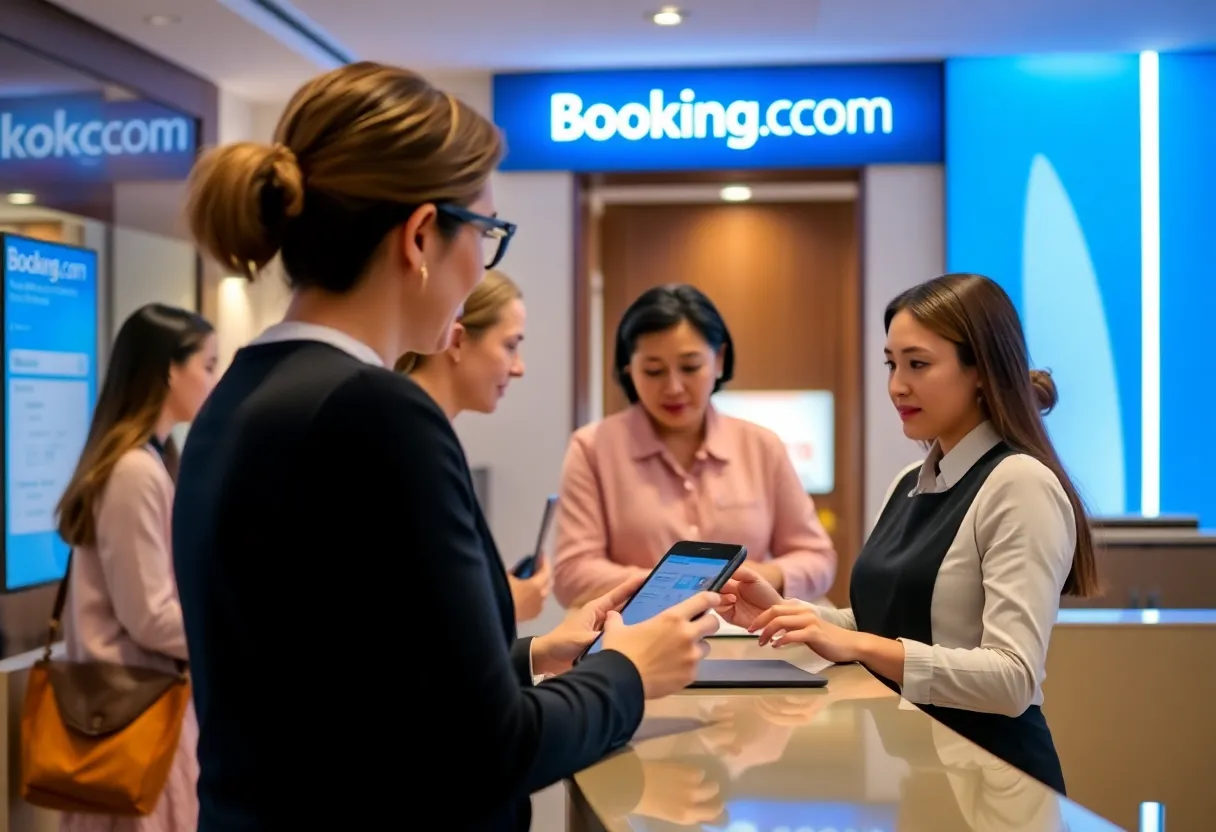News Summary
Spain’s regulatory agency has imposed a significant €413 million fine on Booking.com for unfair commercial conditions imposed on hotels. This has sparked discussions among hoteliers about their reliance on OTAs, the need for improved customer data control, and reevaluating marketing strategies. As the landscape changes, hotels must embrace technology, adjust marketing tactics, and focus on direct bookings to thrive in the post-COVID era.
Booking.com Faces Major Fine: Implications for the Hotel Industry
In a significant turn of events, Spain’s regulatory agency has imposed a hefty €413 million fine on Booking.com for what it claims are “unfair commercial conditions” imposed on hotels. This decision has stirred a much-needed conversation among hoteliers about their reliance on online travel agencies (OTAs) and the need to rethink their marketing and operational strategies.
The Double-Edged Sword of OTAs
Many hoteliers find themselves in a love-hate relationship with OTAs. On one hand, these platforms are fantastic at capturing bookings and giving hotels exposure to a wider audience. On the other hand, hotels often feel frustrated because OTAs hold the key to essential guest data. This ongoing struggle has prompted numerous hoteliers to express their desire to regain control over their customer conversations.
Embracing Technology for Better Outcomes
There’s exciting news on the tech front! Hoteliers are increasingly focusing on leveraging technology to collect, analyze, and connect with their guests more effectively. By investing in tools that provide a better understanding of guests’ preferences and behaviors, hotels can genuinely enhance their operations and boost their financial outcomes. Realizing the importance of taking direct control over consumer interactions is a trend that’s gaining traction.
The Shift in Marketing Strategies
With the looming changes brought by the European Union’s Digital Markets Act, there is potential for big shifts in how businesses handle digital marketing. At the recent Phocuswright Europe event, many experts emphasized the need for hotels to scrutinize their digital spending critically. For instance, while a whopping 29% of hotel marketing budgets currently funds social media initiatives, this only results in a meager 1% of marketing revenue. It’s clear that hoteliers need better return on investment analysis to make their marketing dollars work harder.
Rethinking Influencer Marketing
Another area that has come under the spotlight is influencer marketing. The effectiveness of influencer collaborations, especially for limited-service hotels, is being questioned. In contrast, luxury properties might see benefits like increased awareness and bookings. This brings forward the need for hotels to tailor their marketing approaches based on their specific market segments.
Harnessing the Power of AI and Data
Artificial intelligence (AI) and machine learning technology present exciting opportunities as hotels look to understand guest behavior better, refine pricing strategies, and optimize content distribution. The real game-changer? Owning first-party data. This data not only allows hotels to tailor their marketing efforts but also fosters deeper customer engagement.
Aligning Strategies for Success
Experts are advocating for a strategic realignment in the hotel industry. By integrating sales, marketing, and revenue management, hotels can better navigate today’s complex market environment. The conversation centers around ensuring that every dollar spent on marketing aligns with broader business goals. This cohesive approach can ensure tangible results from marketing investments.
Navigating the Post-COVID Landscape
The booking landscape has undergone a massive transformation since the COVID pandemic. Initially, direct bookings surged as travelers prioritized safety; however, there has been a gradual return to using OTAs as travelers seek better deals. Google has firmly established itself as a prime driver of travel research, reshaping how consumers discover and book accommodations.
The Road Ahead for Hoteliers
As the dust settles on the recent fine against Booking.com, it’s clear that the hotel industry stands at a crossroads. By focusing on producing high-quality content and combining it with targeted paid distribution, hoteliers can substantially enhance their marketing effectiveness. The key takeaway? Hotels must strategically rethink their approaches to maximize their performance in a rapidly changing landscape.
In summary, the road ahead is one of transformation for the hospitality sector. By embracing technology, re-evaluating marketing strategies, and striving for a deeper understanding of their guest profiles, hoteliers can navigate these tumultuous waters and come out stronger on the other side.
Deeper Dive: News & Info About This Topic
HERE Resources
South Carolina Emerges as Top Choice for Job Seekers and Homebuyers Amid Economic Growth
Manhattan Reels from CEO’s Murder: Accused Killer Awaits Justice
Manhunt Intensifies in Manhattan After Shocking Assassination of Healthcare Executive
New Hotels Opening in Greenville and Spartanburg in 2025
New Hotels Popping Up in Greenville and Spartanburg’s Hospitality Market in 2025
New Hotels Under Construction in Greenville and Spartanburg – Set to Open in 2025
New Hotels Underway in Greenville and Spartanburg Set for Completion in 2025
Wyndham’s ECHO Suites Fuels Growth in Upstate
New to the Street: Extended Stay America’s Premier Suites in Duncan
New to the Street: Extended Stay America’s Premier Suites – Bringing Comfort and Convenience to Deacon Tiller Court, Duncan
Additional Resources
- Phocuswire: Booking.com Fine Highlights Hoteliers’ Challenges
- Forbes: The Evolution of Hotels in the Post-COVID Era
- Skift: Reimagining Hotel Marketing Strategies Post-COVID
- Hospitality Net: What Hoteliers Need to Know About Future Bookings
- Hospitality Tech: What Hotels Need to Know About Digital Marketing in 2023








